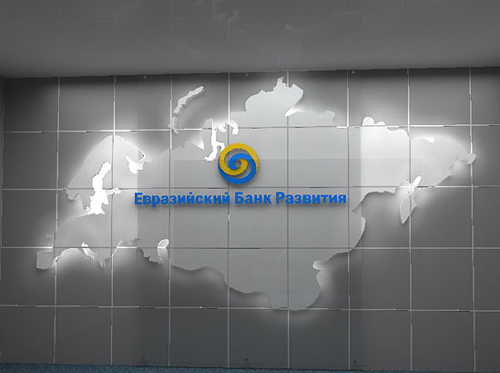"The markets are hot this year, with Eurobond issuance out of Russia for first 10 months at approximately two-times that of the full last year's and already at the level of 2010," says Dmitry Krasilnikov, member of EDB's board of directors, who organised the bond placement. "We issued our debut US dollar Eurobond in 2009 and since then have looked mainly at the local Russian market to raise funds."
The EDB has tapped the local Russian debt market to raise RUB20bn in total from four issues over the last four years. Just in February the bank offered two issues – with two-year and three-year put offers – which were priced at an 8.5% yield. "The local funding costs were okay, but the problem was the relatively short tenors. While the local yield curve remains quite steep, we could not go any longer than three years. It is not long enough, as our investments require maturities on the order of a decade," says Krasilnikov.
However, now Russia's economy is clearly recovering, albeit at a slower rate than before the 2008 crisis, the bank was back in the international debt market in September with a new Eurobond offering. "We issued a bond at mid-swaps plus 295 basis points, which was a tighter spread than that of [Russian state-owned blue chip] Sberbank and at the same level as [Russia's state debt agency-cum-development bank] Vnesheconombank" says Krasilnikov.
The $500m, 10-year bond yielded a low 4.767% against the 7.375% that the EDB had to pay on its debut Eurobond three years ago for the same amount, which also only had a five-year maturity.
There are several reasons why an EDB bond prices lower compared with Russia's leading banking blue chips. First, as a pan-regional entity the bank is not as exposed to single government risk as the leading commercial banks are. At the same time, as an international financial institution it also enjoys preferred creditor status and immunities that further reduce its risks, making its bonds more appealing. "Investors view us as a more transparent name than many national state-controlled entities. We also benefit a lot from our status as a supranational organisation supported by our member states – six in all, including Russia and Kazakhstan," says Krasilnikov.
Cross-border integration
The new money will be used to continue the bank's investments to promote cross-border integration and economic growth. The bank already has almost $3.5bn invested in over 50 projects in various sectors in its member state economies. "We will most likely not be back to the international market this year, but in 2013 – markets permitting – we may issue internationally both in US dollars and rubles. We will be seeking to improve liquidity in our outstanding issues and to further cut down our cost of financing," says Krasilnikov.
Krasilnikov anticipates strong demand for all the EDB's bonds. Russia's international bond issuance has been on fire for most of this year with Russia on course to issue a record number of bonds: by September, Russian borrowers had issued $28.6bn of bonds, second in the world only to Brazil's $34.4bn of new debt. The total volume of new Russian Eurobond issuance in 2012 might come at $35bn-40bn, especially after Russia's capital market is thrown open following reforms that will hook the local debt market into the international financial system due in November. "Many Russian banks and corporates are an attractive bet for international institutional investors who are seeking yield pick-up for their portfolios on the back of the monetary easing by key central banks," says Krasilnikov. "Integrating the Russian financial system into Euroclear will benefit the second- and third-tier companies that will work hard to improve their transparency and corporate governance to appeal to international investors."
Ben Aris in Moscow
BNE

 Russian bonds are in demand and a window of opportunity has opened for quality issuers from the region to tap international markets for the best time in years. The Eurasian Development Bank (EDB) was one of the latest to go to market in September, issuing a $500m, 10-year bond at a yield almost half that of the bank's debut bond only three years ago.
Russian bonds are in demand and a window of opportunity has opened for quality issuers from the region to tap international markets for the best time in years. The Eurasian Development Bank (EDB) was one of the latest to go to market in September, issuing a $500m, 10-year bond at a yield almost half that of the bank's debut bond only three years ago. 


.jpg/250px-ElbeDay1945_(NARA_ww2-121).jpg)





